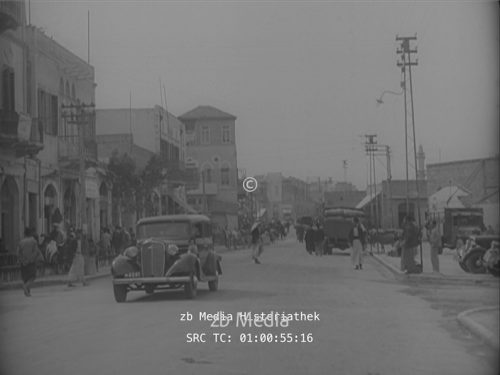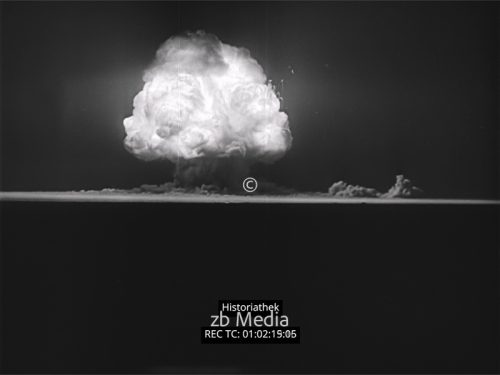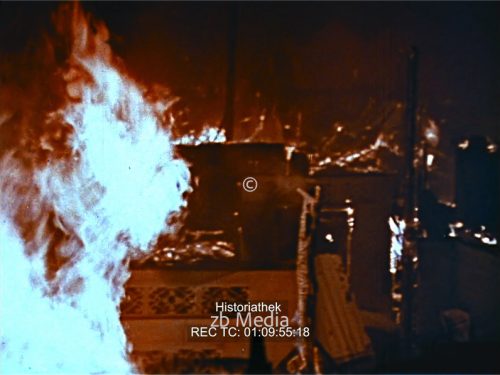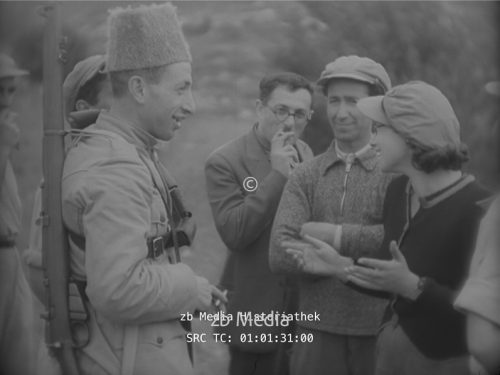African campaign 1941: The film footage shows the advance of German troops in Libya in 1941. Length: 4:32. A licence fee of 9 x 30 seconds is charged to purchase a licence for the complete film.
African campaign 1941
Description
African campaign 1941
Historical background
The film footage shows the advance of German troops in Libya in 1941.
German reconnaissance commando by car in the desert, finds tyre tracks and identifies them as enemy tracks by measurement. Stops in the desert village. Staff unit of the combined German and Italian armoured troops. Generals Cavvallero, Rommel, Kesselring, Leidemena. Anti-aircraft alarm; anti-aircraft fire against English aeroplanes laying a “carpet of bombs”. “The English are deliberately burning the flats”. English aeroplane shot down. English tank attack repelled by artillery fire.
From 1941 to 1943, General Erwin Rommel, also known as the “Desert Fox”, was commander of the German troops in North Africa during the Second World War. His troops formed the so-called “German Africa Corps” and fought mainly against the Allies, in particular against British and American forces.
Rommel’s troops had won several significant victories in North Africa in 1941 and were known for their tactical ability and mobility in the desert environment. They introduced blitzkrieg tactics based on rapid advances and surprise attacks. Rommel also utilised the terrain knowledge and experience of his troops to outwit his opponents.
One of the most famous battles in which Rommel’s troops were involved was the Battle of El Alamein in 1942, where they faced British forces under the command of General Bernard Montgomery. Although Rommel’s troops were initially successful, the Allies ultimately succeeded in defeating them in battle and forcing them onto the defensive. The main problem for the German troops was the dwindling supply of weapons and ammunition due to air raids and submarine attacks on the supply ships.
After initial successes, Rommel’s troops suffered setbacks from 1942 onwards and eventually had to retreat to Tunisia. This marked the end of the German advance in North Africa. The Allies continued their offensive and finally defeated the remaining German troops in North Africa in May 1943.






